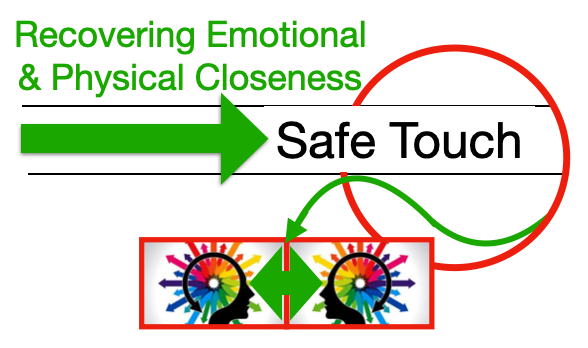Slow, small steps, taken often
"Safe touch" describes consensual physical contact that feels non-threatening and promotes emotional safety and trust between partners.
It plays a significant role in rebuilding intimacy, particularly for couples dealing with past frustrations and possible hurts in the physical affection and sexual closeness areas.
Key Elements of Safe Touch:
Consent: Both partners willingly agree to the touch and how without coercion or pressure.
Comfort: The touch respects individual boundaries and comfort levels, ensuring no one feels overwhelmed or uncomfortable.
Communication: Partners openly discuss their feelings and preferences regarding touch to ensure mutual understanding.
Non-Sexual: Often, safe touch starts as non-sexual to rebuild trust, such as holding hands, hugging, or touching the shoulder or back. Sexual touch is a distinct, different, and tender conversation.
Awareness: Safe touch is attuned to the emotional and physical state of both partners and adjusts if one becomes distressed.
Practicing the Benefits of Safe Touch:
Rebuilding Trust: A safe touch provides a foundation for regaining connection, especially for couples who have experienced betrayal or trauma.
Enhancing Emotional Intimacy: Physical closeness without pressure can deepen emotional bonds.
Reducing Anxiety: Safe touch can alleviate fears or apprehension about physical closeness.
Safe Touch is a step toward re-establishing a healthier, more fulfilling emotional and physical relationship.


